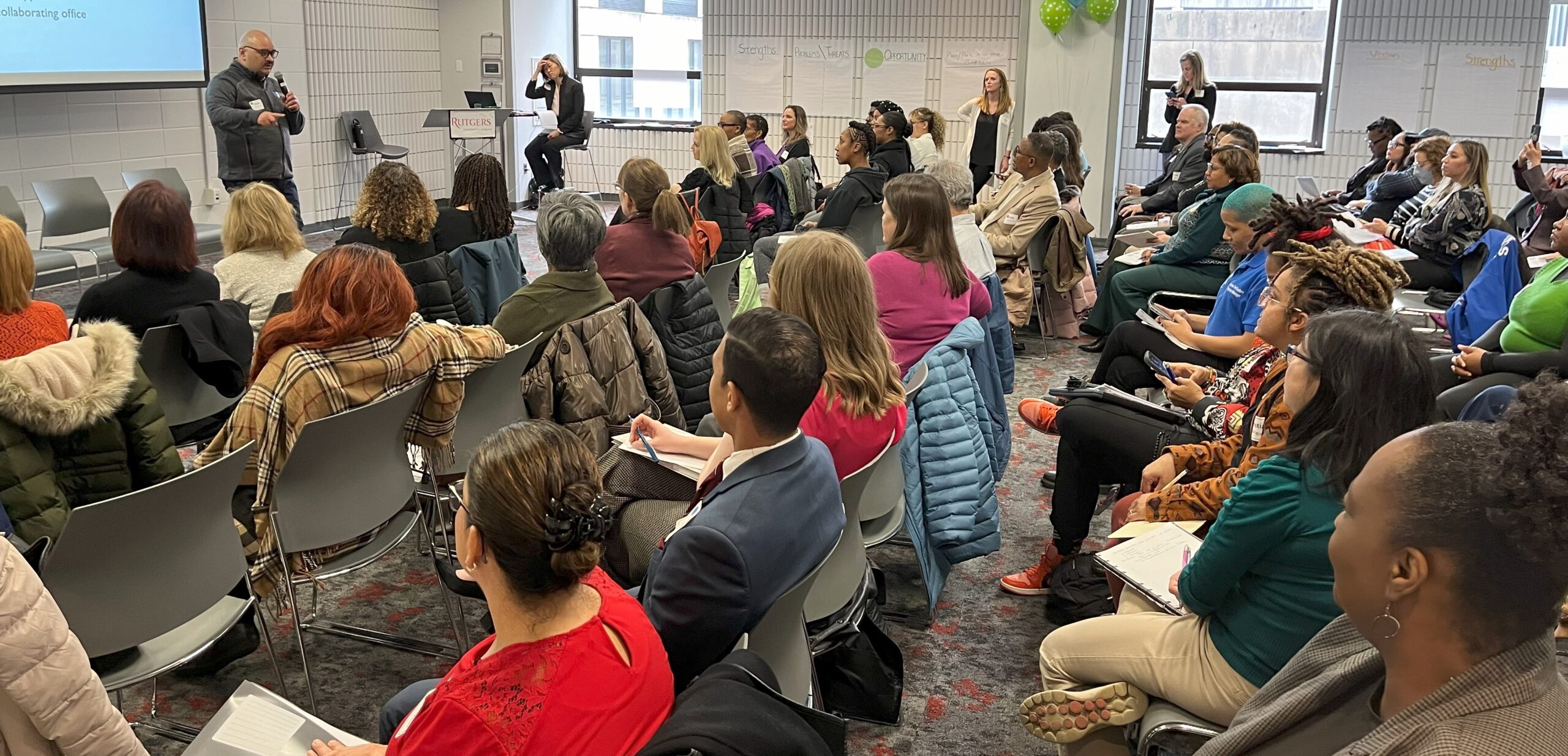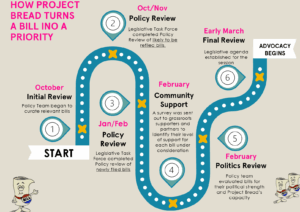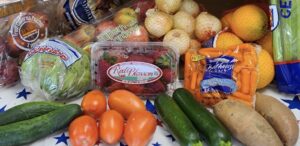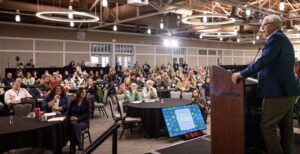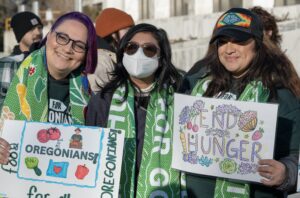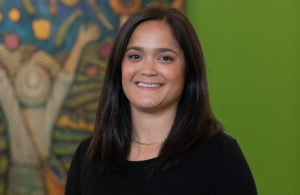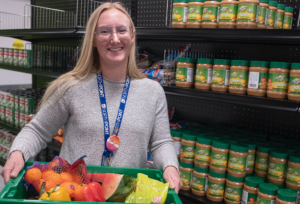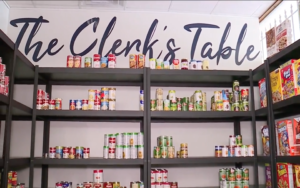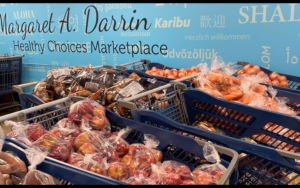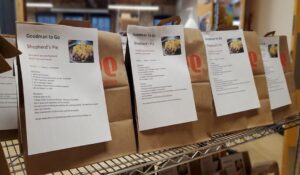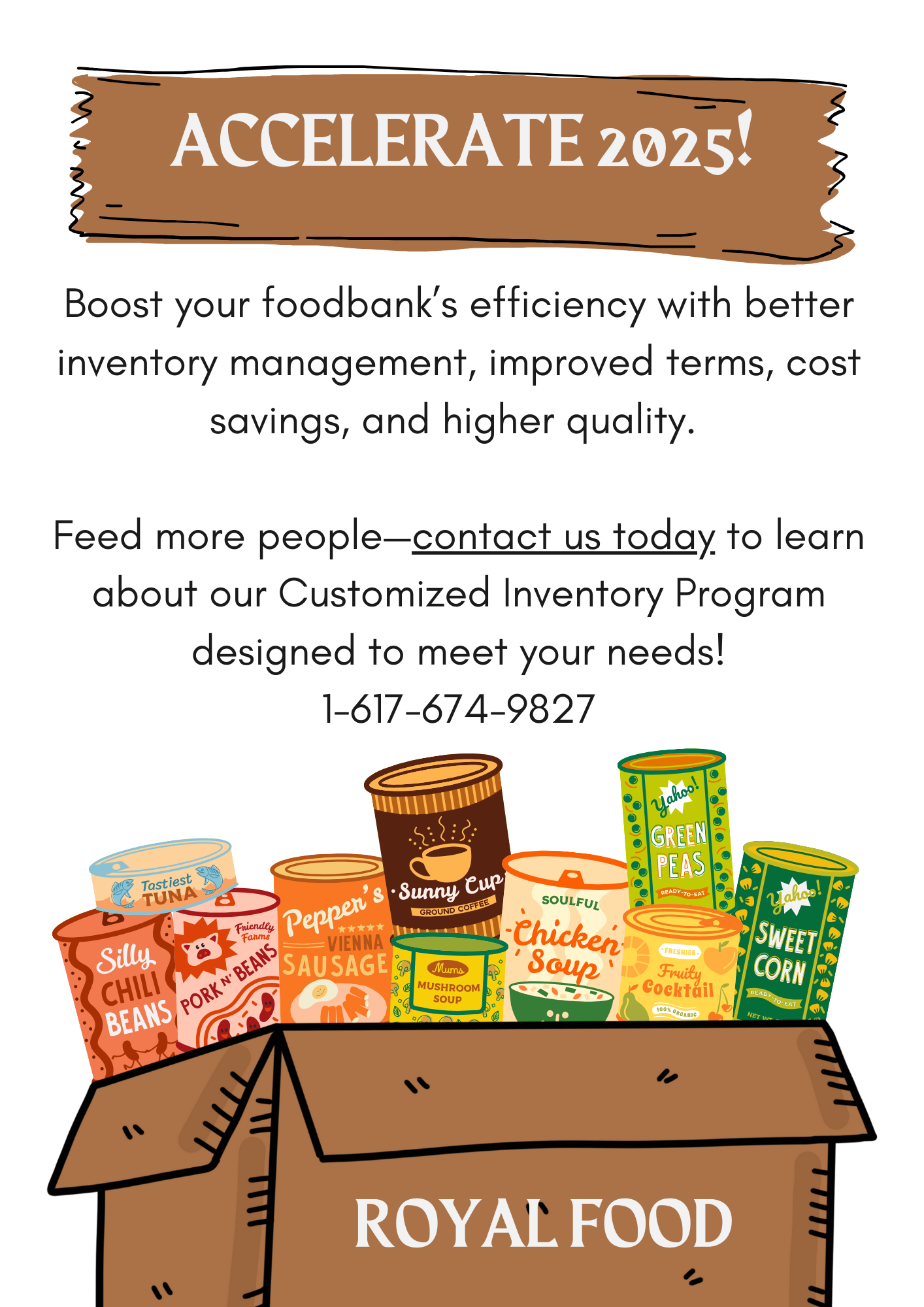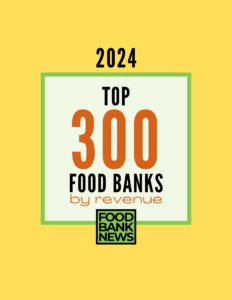It’s fair to say that running a food pantry, even as a volunteer, is a time-consuming job, making it difficult to plan beyond the immediate tasks at hand. But it’s also evident that a new spirit of collaboration between front-line emergency food providers is percolating.
Sharing information, establishing a unified voice around common interests and advocacy efforts, and providing mutual support are all some of the ways front-line food providers are working together. “It wasn’t like this ten years ago,” noted Stephen Grimaldi, who has been Executive Director at New York Common Pantry since 2008. “We’re putting competition aside, we’re collaborating, we’re partnering. We’ve decided we’re better together.”
New York Common Pantry is one of eight members of The Roundtable, a New York City-based coalition of front-line food providers that has logged successes in strategic purchasing, advocacy and mutual support, setting a pathway for other types of pantry-led collaborations to take form. Up from four members originally, the current eight collectively distributed 52 million meals in 2022.
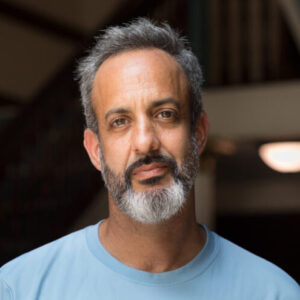
By banding together, front-line providers are starting to wield greater power in the charitable food ecosystem. More power is necessary, given the enormity of the problem they are trying to solve – the demand for food keeps going up, while city and state funding is going down.
“We need to see more action,” said Greg Silverman, Executive Director of West Side Campaign Against Hunger in New York City. “The easiest way to do that is to have people work together who are all mission-driven.”
Silverman, a former chef, founded The Roundtable after taking to heart one of the key lessons he learned as a chef: always work together. He initially focused The Roundtable on working together to buy larger quantities of better food at lower prices. Since then, the group has expanded its focus to include advocacy and mutual support.
Its first win came during its pilot phase when members shared purchase price information to score average savings of 20% on food costs across the collective. Post-pandemic, the group has continued to refine its approach to strategic purchasing, creating a database with nearly 2,500 data points to give members broad visibility into available prices so they can make better purchasing decisions. Bulk purchasing has also been a win. In 2022, The Roundtable made three bulk purchases of oats and milk, saving members more than $55,000. In 2023, it did 14 bulk purchases for a total savings of $183,000.
In 2022, The Roundtable embraced advocacy, partnering with Equity Advocates to develop an advocacy agenda. When New York City began to roll out a new funding program for food, the group saw an opportunity to use its collective voice, helping to bring about an expanded program with a greater number of fresh and kosher items. “The Roundtable voice was really essential” in that process, said Jessica Chait, Managing Director of Food Programs at Met Council, a member of The Roundtable. “We’re not just anybody,” she said of Roundtable members working together. “We’re solutions-based organizations bringing real ideas to the table.”
Similarly, advocacy has become the latest initiative of MEND (Meeting Essential Needs with Dignity), a collection of 21 pantries operating in the same county that houses Newark, NJ.* MEND began in 1980 as a small handful of leaders at houses of worship that sought to share their concerns and challenges related to running food pantries. Now, MEND continues to promote knowledge-sharing through monthly meetings where food pantry leaders come together to share both their problems and solutions. “There’s this power in the collective of everyone feeling like they can come and ask questions,” said Robin Peacock, Executive Director.
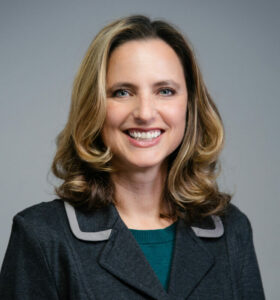
At the most basic level, MEND sees its role as listening to the concerns that bubble up from the pantry network, and then identifying and elevating solutions. A few years ago, the need for fresh food emerged as a common theme, prompting MEND to raise awareness of the issue with local food providers, food donors and funders. It also won grant funding, enabling it to build infrastructure so it could store and refrigerate fresh food on behalf of its pantries. As a result, 90% of the supplemental food it provided through its pantry network last year to 480,000 people was fresh.
Now MEND is setting its ambitions higher. On February 1, after months of planning, it assembled more than 50 organizations to examine all the ways to address food and nutrition insecurity throughout the county, including solutions that have nothing to do with food. MEND’s long background of convening, listening and responding to its pantry partners gave it the confidence that it could generate the same type of energy and action at a higher level. “It put us on a good path to be able to have the capacity to do this on a larger scale,” Peacock said.
Keily Hayes, Director of Community Impact at MEND, agreed that there are parallels between the gatherings that MEND facilitates at the pantry level and now the county level. “What we hear so often from our pantry network is, ‘I just feel glad that I’m not in this work alone,’” she said. “And it was the same thing for the county. It feels like there is a huge craving among organizations and providers to be together and have a better network.”
Like MEND, The Food Pantries for the Capital District in upstate New York began decades ago by convening a small group of pantries. Now the group supports about 70 pantries by raising funds, purchasing and delivering food, and fostering collaboration, service coordination and education.
In 2020, Executive Director Natasha Pernicka aimed higher by forming a separate organization, The Alliance for a Hunger Free New York, to serve as a statewide voice for food pantries, advocating on their behalf to state legislators. “The voice of the food pantry is so important because it’s where the rubber hits the road,” Pernicka said. “We can speak together as a concentrated voice.” – Chris Costanzo
CAPTION FOR PHOTO ABOVE: MEND convened more than 50 county-level organizations to devise cross-sector solutions to food and nutrition insecurity.
* Full disclosure: Chris Costanzo is a board member of MEND.
Like what you’re reading?
Support Food Bank News
